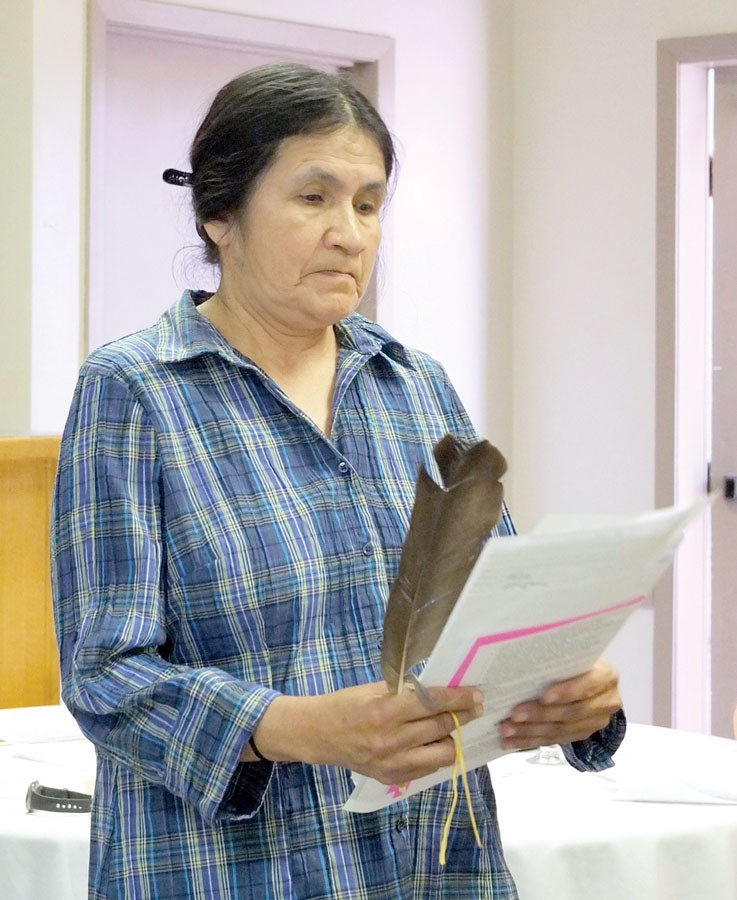As anti-nuclear activists react to NWMO’s exit from Creighton, northern Manitoba First Nations are ready to learn more about the process of storing radioactive material.
In a Winnipeg Free Press opinion piece, freelance writer and anti-nuclear activist Dave Taylor credits project opponents with helping to cross Creighton off the list of potential storage sites.
“Of course the public is told the geological conditions are not suitable, but that’s not the only reason the Nuclear Waste Management Organization (NWMO) is dropping Creighton from its list of 11 finalists,” Taylor wrote Sunday on the Free Press website.
“In reality, a well-organized opposition, Saskatchewan’s Com-mittee for Future Genera-tions [anti-waste group], and the Peter Ballantyne Cree Nation, were pivotal in preventing this repository from being built on traditional territory.
“They only had to consult with their elders – the rock of the Canadian Shield is considered the grandfather according to cultural traditions – and you don’t put poison in your grandfather.”
Welcomed
Another anti-nuclear-waste activist, David Geary, took to the pages of The StarPhoenix to welcome NWMO’s decision.
“The waste burial proposition contains much unproven and highly speculative science and technology,” wrote Geary. “Aspects of it were even criticized by NWMO’s International Technical Review Group. As well, its computer models cannot show the validity and predictive values needed over the required longtime scales (millennia).”
Further “serious problems,” Geary wrote, “include the risk of accidents and contamination during transportation of the fuel bundle casks, security and terrorism concerns, and the threat to the public and workers of radiation exposure.”
Geary, who had visited Creighton to question NWMO’s plan, added that the proposal has sparked “angry debate and deeply polarized feelings within many communities” involved in the process.
In a news release, the Committee for Future Generations framed NWMO’s announcement through the lens of a “four-year long battle against the threat of burying millions of highly radioactive nuclear fuel rods.”
The committee, which includes local members, asserted that NWMO withdrew “thanks to thousands of people with the courage and wisdom to take a stand.”
Committee member Marius Paul said in the release that the used nuclear fuel rods NWMO wants to store constitute “the most lethal waste product on earth.”
Educational
Meanwhile, NWMO has signed an educational agreement with Manitoba Keewatinowi Okimakanak (MKO), which represents northern Manitoba First Nations.
Under the deal, NWMO will fund educational services for MKO communities to understand what NWMO is doing.
“The agreement has nothing at all to do with MKO looking to be a potential host,” said NWMO spokesman Mike Krizanc. “They just want to learn about it because they feel like it could impact them some way in the future. We closed off the expressions of interest in 2012, so we’re not seeking new interest from potential hosts. We’re in fact narrowing down the number of communities we’re working with.”
MKO Grand Chief David Harper also made it clear that the agreement is based on education only.
NWMO will provide funds of up to $312,689 for the MKO 2015-16 work plan. This includes $91,000 for human resources and hiring a project manager to lead the educational services, $25,000 to support northern Manitoba trappers and $40,000 for educating and including youth in the talks.
Other dollars will go toward office operations, travel, elder and MKO senate support, and community meetings.
NWMO is seeking a location for an underground repository that will store Canada’s used – but still radioactive – nuclear fuel rods.
The organization withdrew Creighton from consideration last week, citing geological flaws. Creighton never applied to host nuclear waste, only to learn more about the long-term possibility.
– With files from the Thompson Citizen




